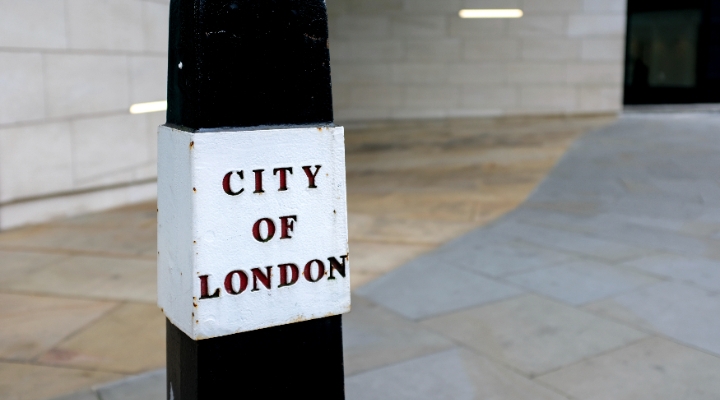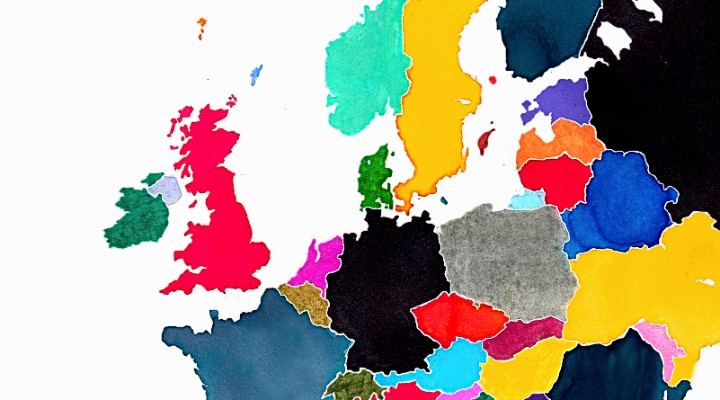From time to time, Morningstar publishes articles from third party contributors under our "Perspectives" banner. Here, Campbell Harvey from TheStreet lists a number of lessons from the Irish debt crisis and analyses the benefits and risks associated with the eurozone's biggest economy, Germany, propping up the single currency regime. If you are interested in Morningstar featuring your content, please provide your details and/or submit your article here.
It makes sense that there is a secret group within the German Bundesbank working on a plan to resurrect the Deutsche Mark. It would be a gross failure of national risk management if the central bank did not have a plan. Call it Operation Vollkreis.
Sovereign Extend and Pretend
Isn't this script getting a little tattered? Talk of a crisis starts. Sovereign yields rise. National politicians say no need for intervention. Austerity measures are introduced. Bond yields rise even more. Bailout is announced. Attention is then focused on the next domino.
Greece bought a couple of years with a EUR 110 billion bailout by the EU-IMF.
Ireland has bought a couple of years with an EUR 85 billion bailout, also by the EU-IMF.
 Attention is now focused on Portugal. On deck is Spain, which is "the big one" (representing almost 11% of eurozone banking). To be very clear, the European Financial Stability Facility does not have the money to bail out Spain (though it can handle Portugal) -- nor is it realistic to think that the EFSF can be recharged to cover more than a few of the smaller peripheral countries.
Attention is now focused on Portugal. On deck is Spain, which is "the big one" (representing almost 11% of eurozone banking). To be very clear, the European Financial Stability Facility does not have the money to bail out Spain (though it can handle Portugal) -- nor is it realistic to think that the EFSF can be recharged to cover more than a few of the smaller peripheral countries.
More seriously -- what happens after Spain? The next big ones are Italy, Belgium and France.
There is only one country in the eurozone capable of bailing out the eurozone members: Germany. In my opinion, it is getting near to the point where the cost to Germany exceeds the benefit.
Who Is to Blame?
It is important to understand the differences between the collapses of Iceland, Greece and Ireland.
Let's start with Greece. This country was fiscally irresponsible. It racked up massive government debt paying for social programmes that it could not afford. Investors foolishly (in hindsight) thought that Greek debt was no more risky than German sovereign debt. Greece's problem was that of fiscal mismanagement.
Given the political difficulty in implementing austerity measures, usually a country's currency is devalued. However, there was no Drachma to devalue. The country is stuck in the eurozone. The only choices the country has are sovereign default, extreme austerity, return to the Drachma -- or being bailed out. You know what was decided, but it really just buys Greece three more years.
Now let's consider Ireland.
In strong contrast to Greece, Ireland was fiscally prudent. In 2007, the net government debt to GDP was about 10%. The fiscal budget was essentially balanced. However, now we hear that the deficit is a staggering 32% of GDP, the highest in the European Union. What happened?
It the midst of the financial crisis, Ireland made a fatal mistake. To be fair, this was a time of great stress on financial systems. Northern Rock in the UK had to be nationalised in February 2008. Lehman Brothers filed for bankruptcy on Sept. 15, 2008. The increased cost of bank debt was threatening banks throughout the world.
On Sept. 29, 2008, the government of Ireland made the decision to guarantee its banks for two years. This meant not just guaranteeing the depositors but also the senior bondholders. The bondholders are important because they provide much of the capital for banking operations. At the time, Irish Finance Minister Brian Lenihan boasted that "it was the cheapest bank bailout in the world" -- it didn't cost the country one euro. Well, that guarantee has come back to haunt the Emerald Isle.
The reason Ireland has gone down is the banks -- and the ill-advised "guarantee." It was not because of fiscal mismanagement.
Ireland is also in the midst of implementing severe austerity measures. In contrast to Greece, these measures are being used to bail out its financial institutions.
Like Greece, Ireland had no policy option of devaluation. Its hands were tied by the euro.
Iceland's crisis was similar to Ireland's in that the banking sector was overextended. However, Iceland had a policy option that differed from both Greece and Ireland. The currency, the krona, was devalued by 60%. Interestingly, the country is well on the road to recovery.
Lessons From Ireland
You can't just blame the banks in Ireland. It was the government that guaranteed them. What sort of risk management practice did the government have in place?
Well, a lot of the risk management comes from the EU. The Committee of European Banking Supervisors (CEBS) provides much of the risk management. Indeed, in July 2010, it (infamously) conducted some stress tests -- here they are for Ireland and for the rest of the EU.
Two of the main Irish banks, Allied Irish Bank and Bank of Ireland, came in with Tier 1 capital ratios comfortably above the 6% minimum. Should we blame the CEBS? Not exactly. That is because local regulators supplied the key parameters for the benchmark and "adverse" scenarios. Irish regulators suggested the "adverse" scenario was a drop in commercial and residential real estate prices of 17% in 2010. Prices are probably already below that today.
Nevertheless, the stress test set up by the CEBS was not tough enough (84 of 91 banks "passed"). This is reminiscent of the US stress tests where it was widely accepted that the "adverse" scenario was everybody else's benchmark and the "benchmark" scenario was considered very optimistic.
So, the lessons:
1. Risk-management practices of central regulators need to change. Adverse scenarios need to be adverse. Stress tests should not be spin exercises to mislead both investors and the public.
2. If your banking system is large compared with your GDP and it is dominated by national banks, then you must be extra conservative. Essentially, you are not "diversified." If some of your banks are foreign, there is risk sharing. If they are all domestic, there is limited risk sharing. A good example is Canada, whose banking sector is dominated by Canadian banks. The regulatory environment in that country enforces a level of conservatism. The Swiss have also indicated they plan more stringent rules for their main banks than those suggested in Basel III.
3. A system of national banks is even more risky if you don't have the ability to resort to devaluation. Hence, you need to be even more conservative.
Ireland failed on all three counts. But they are not alone.
Bundesbank Special Ops
Let's return to Germany's problem.
First, it is critical to understand why Germany wants the euro to survive. The German economy has hugely benefited from a cheap euro. This has fuelled its export-driven economy, and the country has racked up a huge trade surplus.
Indeed, there are many similarities to China. Chinese exporters have benefited from a cheap exchange rate and are running trade surpluses of about 5% of GDP. Germany has benefited from a cheap exchange rate and is running trade surpluses that are more than 6% of GDP.
What is the difference?
China overtly manipulates its currency, much to the criticism of the rest of the world.
Germany has the smoke screen of the euro, which is freely floating. However, think of it this way: Suppose the euro was just a combination of the Deutsche Mark and the Drachma. On a free float, there would be a huge devaluation of the Drachma and a revaluation of the Deutsche Mark.
Second, we need to understand the costs to Germany. There are two main costs.
Politically, this is becoming increasingly difficult. The riots in Athens and Paris over the raising of the retirement age to 62 does not sit well in Berlin, where the retirement age is 67. A substantial part of the German population does not feel like paying for unrealistic social programmes in other eurozone countries.
Economically, as the crisis widens, it is increasingly unrealistic to expect Germany to bail everybody out, because it is politically impossible and the country cannot afford it. Why make the same mistake that the Irish made in guaranteeing all banks?
We are reaching the crossing point. The costs of maintaining the euro are set to overtake the benefits for the Germans. Hence, the Special Ops group in the Bundesbank. They are likely working on a plan that could be instantly rolled out.
Does the Euro Really Matter?
I have an interesting (hey, I am not biased!) research paper on exactly this topic. It is in a slightly different setting. However, the punch line is the following. Many of the benefits of European integration came from the harmonisation of regulations and the steps that were taken to facilitate cross border movement of goods, services and people. My work (coauthored with Geert Bekaert, Chris Lundblad and Stephan Siegel) shows that there is little or no impact when the euro is introduced.
This is intuitive. Does is really matter if we have euros or deutsche marks, French francs and Italian liras? We have highly developed electronic trading of currencies. Consumers increasingly use credit or debit cards where the currency conversions are seamless. ATMs dispense multiple currencies if you want cash. It really doesn't matter today. It mattered 20 years ago but not today.
For over 10 years, I have been in the camp that the euro would not work. Currency union without fiscal union is bound to fail -- and we are seeing the failure right now.
Back to the Bundesbank. You know the midnight oil is burning as the Special Ops team considers Plan B - Zurueck zum Ursprung.
The euro has had a good run over the past 10 years. But the iconic barkeeper is shouting "Hurry up, please, it's time!" while the EU tries to squeeze in one more drink.
Disclaimer: All views expressed in this third party article are those of the author(s) alone and not necessarily those of Morningstar. Morningstar is not responsible for the comments nor will it be liable in any way for any information provided by the author.
TheStreet, co-founded by Jim Cramer, is a leading financial media company whose network of Web sites serves as the premier online destination for all areas where money and life intersect. Since its inception in 1996, TheStreet's award-winning Web site has distinguished itself through journalistic excellence and unbiased coverage of the financial markets, economic and industry trends, and investment and financial planning.










.jpg)











